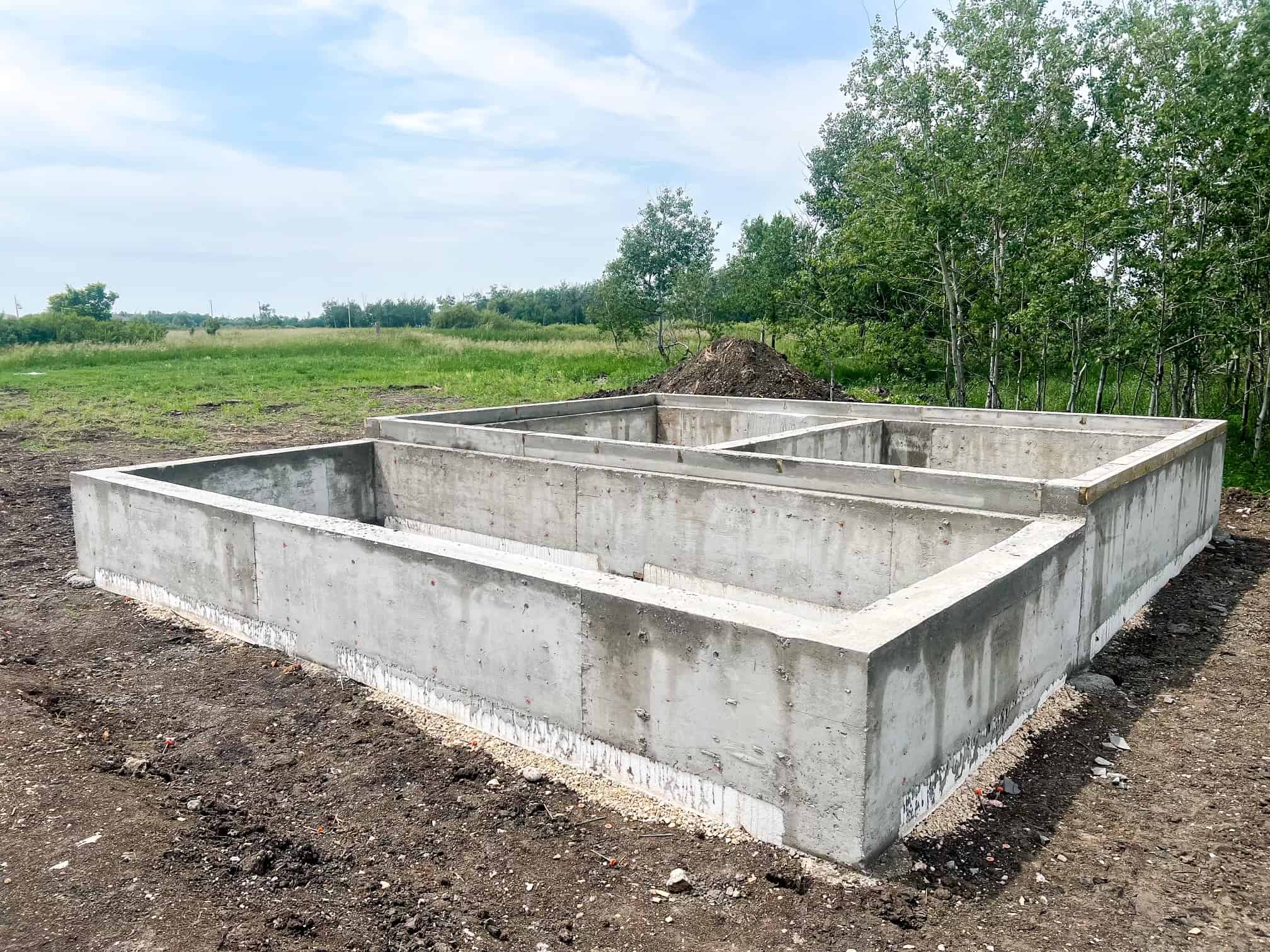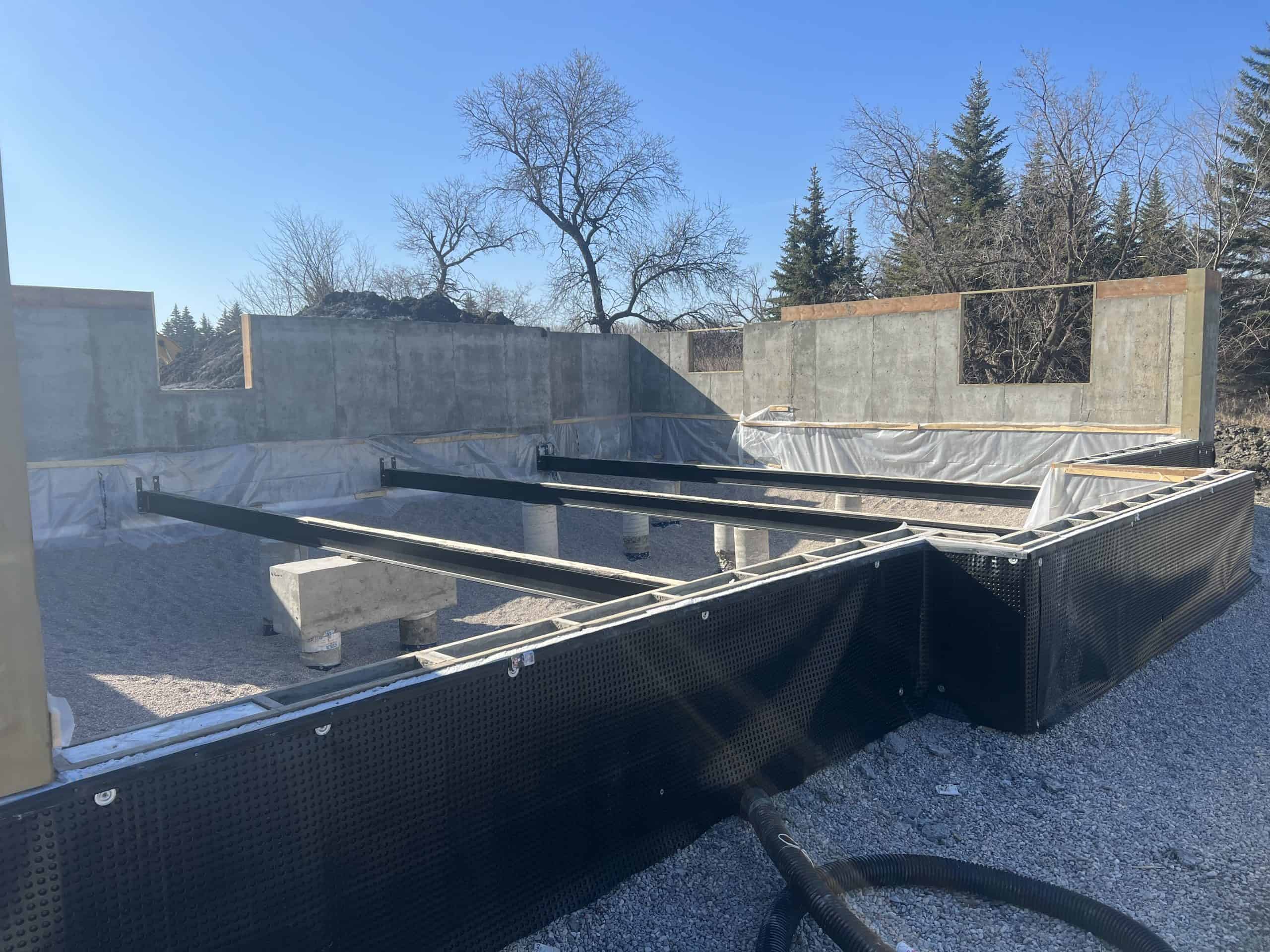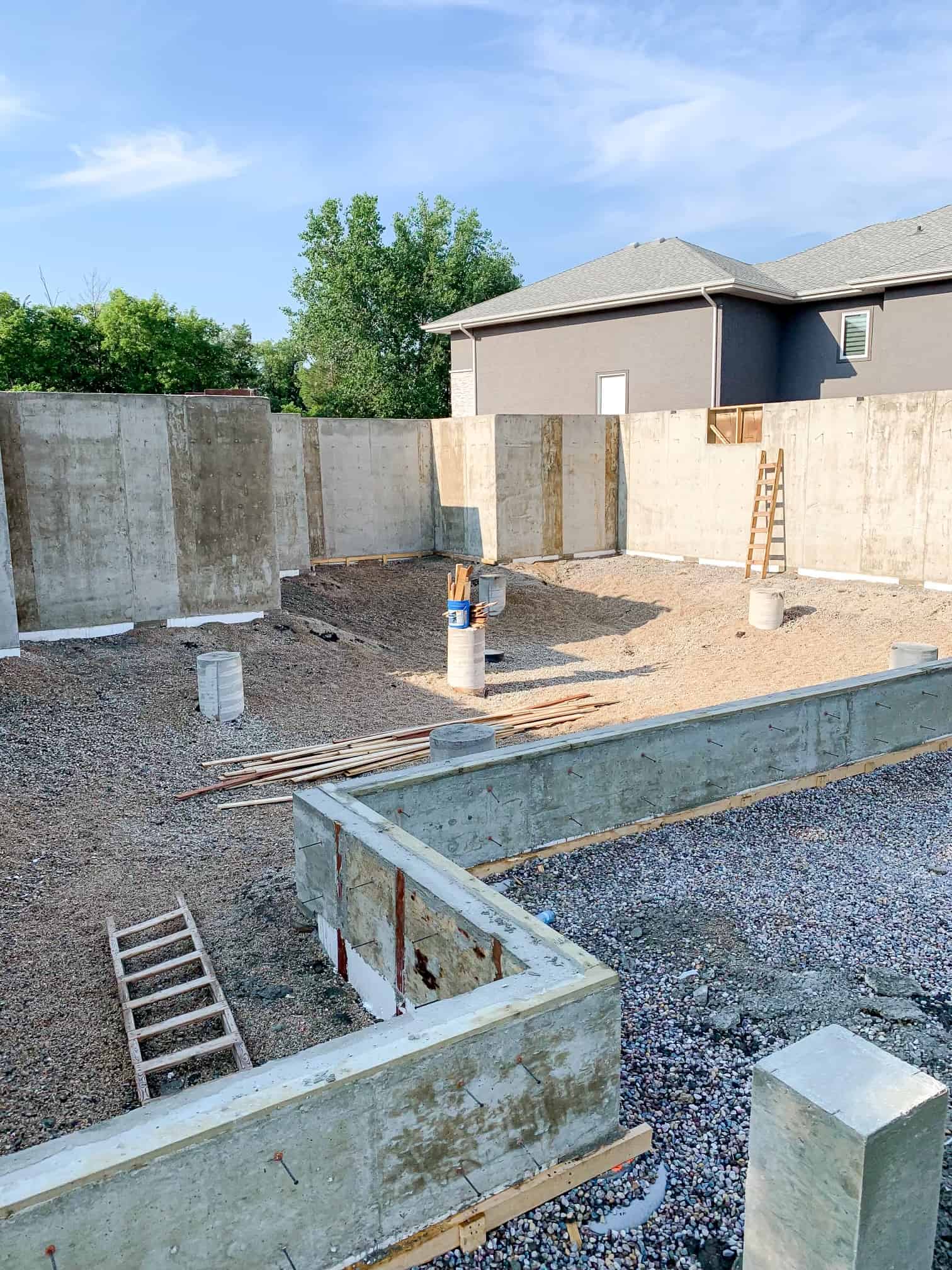Conventional Concrete Foundation
Solid and Time-Tested: Invest in the Durability of a Conventional Concrete Foundation
Conventional Concrete Foundation
Installed by Formwork Foundations
At Formwork Foundations, we take pride in our expertise and experience in providing top-notch conventional concrete foundations for our clients in Winnipeg, Manitoba. When it comes to building a solid foundation for your project, you can trust us to deliver exceptional results.
With our team of skilled professionals, we ensure that every aspect of your conventional concrete foundation is handled with meticulous attention to detail. From the initial planning and excavation to the pouring and finishing, we carefully execute each step to ensure a strong and durable foundation that will stand the test of time.
We believe that the key to a successful conventional concrete foundation lies in using quality materials and equipment. That’s why we only work with trusted suppliers who provide us with the best materials available in the market. Additionally, we invest in state-of-the-art equipment to ensure efficient and precise workmanship.
At Formwork Foundations, we understand the importance of clear communication and transparency. That’s why we provide our clients with a clear contract and pricing before we start any project. We believe in establishing trust and maintaining open lines of communication throughout the entire process, so you know exactly what to expect.
When you choose us for your conventional concrete foundation needs, you can rest assured that you’re getting the highest level of expertise and craftsmanship. We are committed to delivering exceptional results that exceed your expectations. Contact Formwork Foundations today for all your foundation needs in Winnipeg, Manitoba.

What is
Conventional Concrete Foundation
?
Conventional concrete foundations provide a stable and sturdy base for a building or structure.
Conventional concrete foundations consist of a series of footings and a concrete slab. The footings are large, reinforced concrete pads that distribute the building’s weight evenly across the soil. They are usually placed below the frost line to prevent damage from freezing and thawing.
The concrete slab, on the other hand, is a thick, flat layer of concrete that serves as the base for the structure. It is poured over the footings and acts as the main support for the building. The slab is reinforced with steel bars or mesh to enhance its strength and prevent cracks.
Conventional concrete foundations are known for their durability and stability. They can withstand heavy loads and provide a solid base for structures of various sizes. They are commonly used in residential, commercial, and industrial construction projects.
When constructing a conventional concrete foundation, it is crucial to ensure proper site preparation, including excavation and grading. This is to create a level and stable surface. The concrete is then mixed and poured into formwork, where it cures and hardens to form a solid foundation.
Overall, a conventional concrete foundation is a reliable and widely used option in construction, providing the necessary support and stability for buildings and structures.

What are some benefits of a
Conventional Concrete Foundation
?
Conventional concrete foundations are the most common foundation type used in residential and commercial construction. It provides several benefits, including:
1. Durability: Concrete is a highly durable material, making it an excellent choice for foundations. It can withstand heavy loads and resist environmental factors such as moisture, termites, and fire.
2. Strength: Concrete foundations provide excellent structural strength, ensuring building stability. It can support the weight of the entire structure and distribute it evenly, preventing structural issues.
3. Longevity: A properly constructed and maintained concrete foundation can last for decades. It is a long-lasting solution that doesn’t require frequent repairs or replacement, saving homeowners and builders significant costs in the long run.
4. Resilience: Concrete foundations have a high resilience level, meaning they can withstand external forces such as earthquakes and strong winds. This resilience contributes to the building’s overall safety and structural integrity.
5. Versatility: Concrete foundations can be designed and customized to suit specific project requirements. They can be poured in different shapes and sizes, allowing for flexibility in design and accommodating various architectural styles.
6. Energy Efficiency: Concrete has excellent thermal properties, providing insulation that maintains a comfortable indoor temperature. By using less heating and cooling, you’ll save money.
7. Soundproofing: Concrete foundations have effective soundproofing qualities, reducing noise transmission from outside or between different areas of a building. This can contribute to a quieter and more peaceful living or working environment.
8. Environmental Benefits: Concrete is sustainable and eco-friendly. It is made from readily available natural resources such as limestone, water, and sand. Additionally, concrete can be recycled and reused, minimizing waste and reducing construction carbon footprint.
In conclusion, a conventional concrete foundation offers numerous benefits, including durability, strength, longevity, resilience, versatility, energy efficiency, soundproofing, and environmental advantages. Its widespread use in construction attests to its effectiveness and reliability as a foundation choice.




Formwork Foundations was just here… placed concrete in this foundation yesterday. I’m just gonna say, this is a very nice, neat, tidy site that these guys keep. Way to go guys. There’s no rubbish laying around. Everything is cleaned up. Everything is organized. You just love to see that. That shows pride in work.
Jay from AMC Foam
Want to work with us?
Request an estimate today!
Or check out some of our other services.
